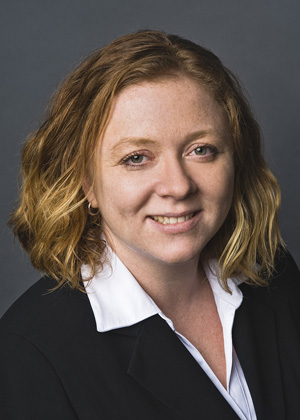Among the noteworthy Ontario Court of Appeal family law decisions this year is
Martin v. Sansome, a case that involved the interrelation between the property equalization provisions of the Family Law Act and the principle of unjust enrichment between married spouses.

The central issue before the Court of Appeal was to what extent, in light of equalization of net family property, a married spouse can maintain an unjust enrichment claim.
In
Martin, the parties had been in a common law relationship for nearly 10 years and were married for another decade. The husband, Delmer Martin, grew up in a Mennonite community on a farm that had been in his family for nearly 200 years. Ultimately, he left the family farm to work outside of the community and started a business.
At one point, the common law spouse, Linda Sansome, worked with him at his business even as most of her pay went back to the company account. That business ultimately failed and he and his business went bankrupt. The mortgagee took the parties’ family home and obtained a further judgment against Sansome for $50,000 as she hadn’t filed for bankruptcy.
Martin’s parents then offered to assist the couple by allowing them to move back to the family dairy farm and, if after a three-year test period things were going well, they could then buy it from them. The parents ultimately sold their milk quota, stopped the dairy farming operations, and distributed the milk quota proceeds to each of their children.
The parties used Martin’s share plus a $90,000 advance on his inheritance to partly fund the purchase of the farm from his parents and financed the balance. However, the day before closing, the wife’s name was struck from the purchase of the property and she was made to sign a domestic contract releasing any interest she had in the farm and home because, she was told, the Mennonite congregation wouldn’t approve of the sale to the parties if she were to maintain an interest and the lender wouldn’t provide funds if she were on title due to the existing judgment against her.
She received a domestic contract to sign and obtained independent legal advice that same day. However, the advice came from a lawyer who, as found by the trial judge, was blind, didn’t read the document, and spent only about 20 minutes in total with her that day. At trial, Sansome moved to set aside the domestic contract, and, among other relief, sought a constructive trust interest in the farm. The trial judge did in fact set aside the domestic contract and awarded her a one-half ownership interest in the farm rather than dealing with the property through the equalization process found in the Family Law Act. The husband appealed the trust issue, among other matters.
In setting aside the award of a one-half ownership interest in the farm, Associate Chief Justice Alexandra Hoy, writing for a unanimous court, outlined the process to follow in these types of cases. First and foremost, before determining the issue of equalization, the court must decide on the ownership of property. In order to determine the ownership interest when dealing with a constructive trust claim, the trier of fact must first decide, and the claimant must prove, that an ownership interest rather than monetary damages is more appropriate. In the case at bar, Sansome didn’t tender evidence on this point (or at least not sufficient evidence). Hoy noted, for example, that she wasn’t seeking to maintain the farm and continue farming it.
Hoy went on to further note that s. 5(7) of the Family Law Act provides that the purpose of the equalization scheme is to address issues of unjust enrichment because the provision recognizes that spouses are deemed to contribute equally to the financial success of a marriage by both financial and non-financial contributions. On the facts of this case, the court determined that an equalization payment would adequately compensate Sansome and, therefore, there was no need to look into the issue further. While I see the court’s point to a certain extent, I don’t entirely agree with this decision. Certainly, an equalization scheme addresses property issues between spouses arising out of the marriage; however, it doesn’t cover other situations, like in this case, of significant premarital cohabitation and efforts by a common law spouse in the maintenance of property such as shares in a family business where the non-owner spouse works to keep it going but doesn’t take pay or puts earnings back into it.
In the present case, the wife (both during premarital cohabitation and the marriage) seemed to have made significant efforts in maintaining the farm. In my opinion, the decision overemphasizes the compensatory nature of equalization when discussing unjust enrichment claims that seem to arise outside of the equalization scheme.
Equalization of net family property and constructive trust awards address different scenarios in very different ways. Relying on one to oust the other seems to mix the two together in a way that could lead to unjust results.
Marta Siemiarczuk is a lawyer practising family law litigation and collaborative family law at Nelligan O’Brien Payne LLP in Ottawa. She can be reached at [email protected].

 The central issue before the Court of Appeal was to what extent, in light of equalization of net family property, a married spouse can maintain an unjust enrichment claim.
The central issue before the Court of Appeal was to what extent, in light of equalization of net family property, a married spouse can maintain an unjust enrichment claim.